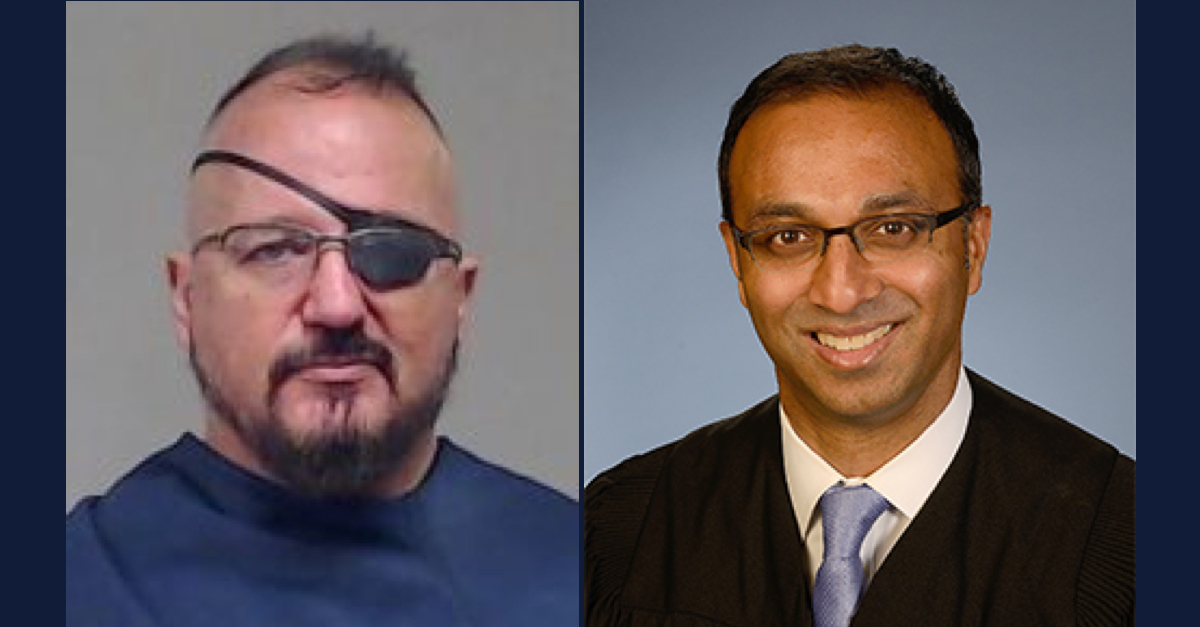
Left: Stewart Rhodes, via Colling County (Tex.) Jail. Right: U.S. District Judge Amit Mehta, via U.S. District Court for the District of Columbia.
A federal judge in Washington, D.C., found it “mystifying” that Oath Keepers leader Stewart Rhodes would make a last-ditch request for the appointment of a special master with trial on the horizon.
U.S. Judge Amit Mehta began a pre-trial conference Wednesday after 9:30 a.m. by saying he hoped to address motions filed in recent days by Rhodes, and to talk about jury selection and courtroom space ahead of the Sept. 27 seditious conspiracy trial.
Judge Mehta, a Barack Obama appointee, explained that he denied the request to appoint a special master because he had “no idea” what the purpose would be. He also denied a trial delay, noting the “government has consistently been providing discovery to defendants in this case — for months and beyond.”
The judge, pushing back on Rhodes’ contention that there has not been adequate time to prepare for trial and review discovery, noted that the issue of the trial date has been settled since May.
The request for a special master was filed by Rhodes attorney Edward Tarpley as Rhodes attempted to part ways with attorneys Philip Linder and James Lee Bright — creating a dueling defense lawyers scenario on the docket. As Law&Crime reported Tuesday, Bright confirmed Tarpley is not the lead attorney on the case, but Judge Mehta allowed him to join and he can file his own motions.
In one such motion, Tarpley insisted there simply hasn’t been enough time to prepare for the “most massively complicated case in American history.” He predicted the defense will “be like a little league team facing the New York Yankees” when it takes on the government.
Tarpley further asserted that a special master was needed to help “manage discovery” — discovery his client claims has been sorely lacking.
But Judge Mehta was clear on Wednesday that Rhodes “has been receiving electronic discovery in a way no other defendant has.”
“I reject it out of hand completely,” Mehta said of the notion that Rhodes hasn’t had access to discovery in the months leading up to trial.
Questioning the good faith of the motion, Mehta said the special master request, filed “for no apparent purpose, for no apparent reason a week before trial, is mystifying.” The judge also said he didn’t know what was meant by the request for the special master to “administer digital discovery” in the case.
Mehta further suggested it was as an odd decision for Rhodes to hire a Louisiana lawyer to assist with purported discovery access issues.
“You told me last week you were here in good faith. I’m starting to question that,” the judge said sharply.
[Left: Stewart Rhodes, via Colling County (Tex.) Jail. Right: U.S. District Judge Amit Mehta, via U.S. District Court for the District of Columbia.]